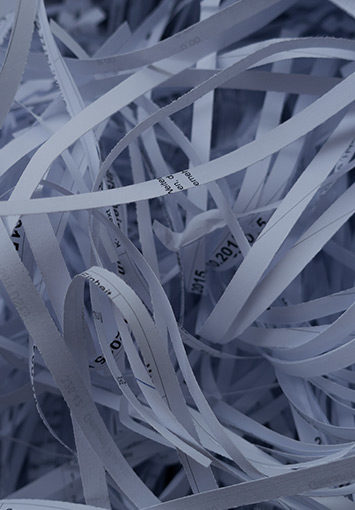Article Category
Document Destruction
Paper shredding services can help your business protect your confidential business data by ensuring the complete destruction of private documents. To learn more about shredding services, check out our articles below, or contact us for more information about our paper shredding service.
When dealing with sensitive information, there’s no room for error. If your businesses handles records containing protected health information, you need to be sure that those records are properly disposed of when they are no longer needed.
With data breaches and identity theft on the rise, businesses and their customers face constant reminders of the consequences of poor data management. To counter this growing threat, many businesses are investing heavily in security and infrastructure to ensure that their sensitive data is properly protected. However, processes for properly destroying unnecessary data when it
Protecting sensitive information is one of the most important responsibilities any business has. Shredding outdated or unnecessary documents is a simple and effective way to prevent information theft or accidental leaks. It’s a small but critical part of a larger data protection plan. Properly disposing of confidential documents can help reduce the risk of a
A lot of businesses make huge investments in security infrastructure, technology, and IT staff to protect their data, while overlooking the final and often most important step in any data management program; document destruction. What happens to paper documents when they’re no longer useful?
Whether it’s customer/client details, financial records, proprietary company information, or employee files, most organizations eventually find themselves in possession of sensitive data. More often than not, a large percentage of that data is stored on paper.




